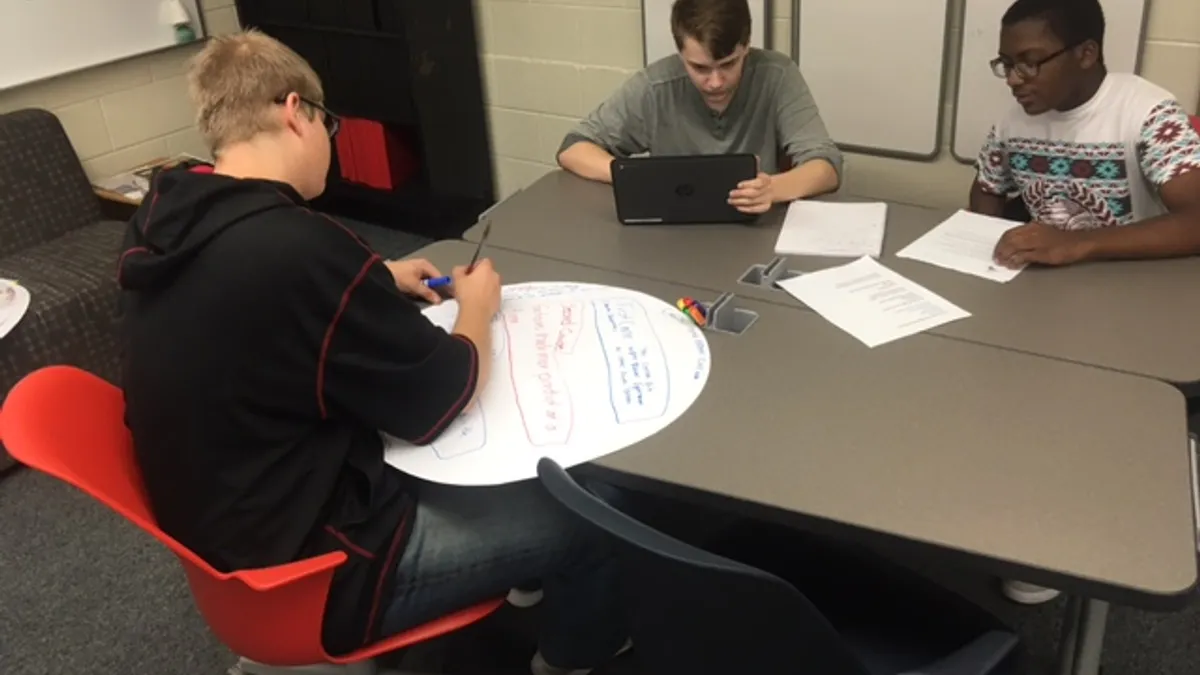Dive Brief:
- Offering guidance to parents during school closures due to the novel coronavirus pandemic will help transition students to online learning, District Administration reports. Educators can share their tips on everything from the importance of free play to how to teach fractions through measuring and baking.
- That doesn’t mean teachers should completely step back, however: Instead they should stay connected as much as possible, says Laura K. Reynolds, University of South Carolina Upstate’s dean of the School of Education, Human Performance and Health. Students should also remain connected to each other.
- Reynolds urges parents to not discipline students during online learning sessions and not to drill students to the point of tears, noting that managing behavior with positive reinforcement takes practice.
Dive Insight:
Whether their child is learning from a teacher, a coach or even a a ski instructor, parents understand that sometimes kids listen more when instructions come from other adults. With school closures, that option is mostly out of the question. Melody Jones, who homeschooled her own children, told New York Magazine parents need to start the daunting process by getting organized and coming up with a workable structure to the day.
Jones suggests rather than trying to introduce new curriculum, consider teaching children life skills like cooking or how to clean a toilet. Nature walks that maintain social distance can be a good way to get outside for an hour to learn about plants, while visiting a cemetery can include math and history lessons when children calculate ages and deduce trends based on dates of death. They could determine, for example, who may have died of the Spanish Flu.
Before diving too deep into any lessons though, educators should also encourage parents to validate the changes to their own lives as well as those of their children. For many students, this abrupt change may be scary. Consistency is key to lessen the impact of the changes. Pre-existing screen time rules, for example, should remain, but flexibility could be included during the crisis, clinical psychologist Jacqueline Sperling wrote in the Harvard Health Blog.
Sperling also recommends parents get creative when it comes to online socializing through apps like Google Hangouts and Zoom. Even young children can have virtual play dates through technology, which will help stave off the loneliness.










